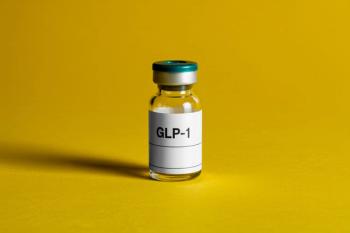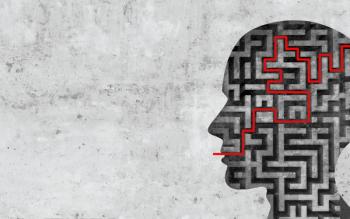
- Psychiatric Times Vol 23 No 13
- Volume 23
- Issue 13
From Our Readers Psychiatric Evaluation and Time Constraints
Certainly, with the advent of the atypicals, it has become almost too easy to forget about doing an Abnormal Involuntary Movement Scale (AIMS) checklist. Given the time and reimbursement constraints of current psychiatric practice, however, it is close to impossible to find time for clinical rating scales.
I would like to thank Dr Pomerantz for providing a very timely and informative review on "Movement Disorders and Tardive Dyskinesia" (Supplement to Psychiatric Times, August 2006). Certainly, with the advent of the atypicals, it has become almost too easy to forget about doing an Abnormal Involuntary Movement Scale (AIMS) checklist. Given the time and reimbursement constraints of current psychiatric practice, however, it is close to impossible to find time for clinical rating scales.
Generally, a medical checkup visit is about 15 minutes long. In that time, I quickly review what was done in the previous appointment (30 seconds to 1 minute) and ask how the patient has been doing in the interim, giving him or her time to talk a bit while I also occasionally interject to clarify things (3 to 5 minutes). I then try to address any complaints using a combination of education about the precipitants of the current problem (which I use quite a lot with most of my patients), the nature of the illness, the role of the medications, and the importance of counseling (about 7 minutes). I also address any concerns that were brought up and whether a medication adjustment or a new medication is needed. I always do a full informed consent with the patient (about 5 minutes, including time for the patient's questions).
Next, I go over any laboratory results that were drawn (time spent is variable because it doesn't come up in every appointment). At this point, 15 to 18 minutes have passed; I already have another patient waiting for me and therefore need to bring the session to a close. I haven't even started the AIMS checklist; Dr Pomerantz mentioned that this can take between 5 and 10 minutes, which adds up to at least 20 to 25 minutes for a scheduled 15-minute appointment.
The insurance company will only reimburse for 15 minutes for a medical checkup visit. On top of that, they will not allow the patient to have an appointment with the counselor and myself in the same week because of financial/cost reasons. Because of this, I can't schedule the patient to come back next week solely to do the AIMS checklist (the week when the patient sees me, he does not schedule a counseling appointment; he sees the counselor the other 3 weeks of the month). In addition to all of this, the AIMS checklist suggests observing the patient in the waiting room when he is unaware; taking into account what I have cited above, this task is nearly impossible.
I am one of those "younger doctors" whom Dr Pomerantz very correctly de scribed as having to familiarize (rather than refamiliarize) themselves with tardive dyskinesia (TD) presentations. Although during residency we were required to complete AIMS surveys routinely for our patients, we were given 30 minutes for medical checkup visits and a full hour for initial visits.
What can be done to ensure that these recommended procedures be carried out under such difficult time constraints? Continuing medical education (CME) activities and the articles I read bring a wealth of important recommendations of what needs to be included in a patient's office visit. Each survey (eg, Mood Disorders Questionnaire, Beck Depression Inventory, Patient Health Questionnaire-9) is reported to be simple and quick to administer, taking only 5 minutes or so.
I do agree that the tests are relatively easy to administer; however, the issue is not the level of difficulty but the impossibility of doing so under time constraints. On one hand, it seems to me that more lawyers and insurance companies are getting involved in protecting the patient's rights and informing them of their rights to sue for malpractice; on the other hand, in surance companies are dictating how I should treat patients pharmacologically, how much time I am allowed to spend with them, and how I will be reimbursed. To top it all off, the med ical community is asking us to fit more into each appointment. I see this as a dangerous spiral, with physicians being the ones who will primarily pay professionally.
Mohamed Dattu, MD Greensboro, Pa
Dr Dattu is an adult outpatient psychiatrist at Cornerstone Care in Greensboro, Pennsylvania.
Dr Pomerantz responds:
I agree entirely with Dr Dattu's observation that the widespread use of 15-minute medication management ses sions adversely affects psychiatrists' ability to properly care for patients. A simple and useful examination such as the AIMS checklist does not get used because of time constraints.
Indeed, the term "medication management" does not accurately por tray what is supposed to happen in proper psychiatric follow-up sessions. As Dr Dattu nicely put into a time context, proper care is much more complicated. It is not just medications that psychiatrists are trying to manage; we are engaged with difficult illnesses and troubled patients. Any change in clinical status takes time to figure out. Is the problem a change in the severity of the illness, a loss of effectiveness of medication, medication side effects, a new comorbidity (somatic or psychiatric), or a change in life circumstances? Doing this clinical detective work, coming up with a new plan (including psychiatric measures and/or laboratory tests), and discussing the plan with the patient cannot be done in 15 minutes.
What I personally have done is to completely avoid 15-minute sessions (Psychiatric Procedure Code 90862). In my private practice, I never schedule less than 25 to 30 minutes for a follow-up session (Psychiatric Procedure Code 90805). Sometimes, but not often, insurance companies have called me to complain; after explaining my reasons, I am usually left in peace. The same thing happens in a clinic situation. My most important negotiation is the amount of time for follow-up sessions, which again has to be 25 to 30 minutes-or I will not work for that organization.
If more of us insist that we cannot and will not do 15-minute medication management sessions, it would improve psychiatric care and make the field far more attractive to medical students. We may also be less likely to be defendants in malpractice cases, because both our work and relationships with patients would improve.
Jay M. Pomerantz, MD
Dr Pomerantz is assistant clinical professor of psychiatry at Harvard Medical School in Boston.
Articles in this issue
over 19 years ago
New Compounds, Novel Strategies Reported at NCDEUover 19 years ago
Shooting For What I Wantover 19 years ago
Differences Cited in Substance Abuse in Womenover 19 years ago
New Search Engine Debuts on Psychiatric Times Web Siteover 19 years ago
Senate Hearings: Suicide in Seniorsover 19 years ago
Kitty Dukakis' Book: in Praise of ECTover 19 years ago
CBT Beneficial in Somatization Disorderover 19 years ago
The Changing Face of Substance Misuse in Older AdultsNewsletter
Receive trusted psychiatric news, expert analysis, and clinical insights — subscribe today to support your practice and your patients.







